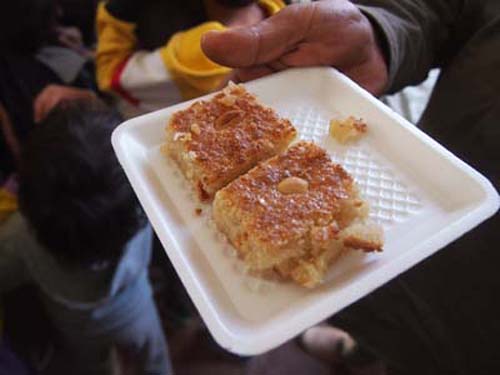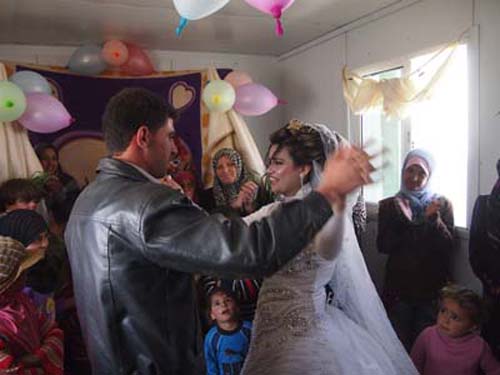
Life is tough for Syrian refugees living in Jordan's sprawling Zaatari refugee camp in the desert. Most have lost everything they once had: their homes, possessions, their jobs and many loved-ones.
In the crowded camp, home to more than 100,000 who've fled conflict in Syria, it's a struggle to find the basics from food and water, to chances to send their children to school.
So it was very exciting to hear of some good news for one family as I toured the section of the camp where Oxfam was working: a marriage party.
Street leader, Rakan el-Wadi, told Oxfam staff that a young couple he knew were celebrating that afternoon and took us to the family caravan.
A self-declared "wedding planner" was already there, arranging aromatic bunches of leaves and wild grass in the prefabricated caravan that was going to become the newly-weds' home.
The mother of the groom had tactfully decided to move in with another of her children's family to give the young couple some privacy. They ushered me inside. Somehow, someone had manage to build a proper bed - not the normal mattresses piled up that most families have been using as beds.
The groom, 21-year-old Ahmad el Rajab was shy and blushed easily. He left his home in Dara'a three months earlier to avoid conscription in the army.
He told me that he and his bride, Nariman, hadn't known each other before they arrived in the camp, as they lived in different villages.
"It was fate", he said. "It was meant to be. I saw her visiting some relatives in this part of the camp. It was love at first sight. I knew straight away that I wanted to marry her."
Ahmad admitted that the camp setting wasn't the ideal place in which to get married, but he shrugged his shoulders. "Of course, we'd like to get married back home, but that's not possible now."
Some of his friends arrived, and they showed me the debkah, a Levantine folk line-dance, performed at weddings, as a cell-phone was used to play some music, amplified by an Oxfam loudspeaker that had been given to the street leader, to help him spread information in the camp . The thin floor of the caravan rattled as the men enthusiastically stamped their feet.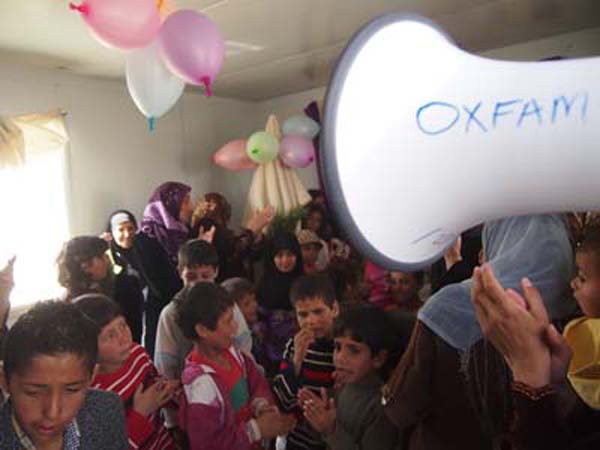
We left briefly to return an hour later, when the party was getting underway. I was almost pushed into the caravan by excited relatives, to see the bride, her friends and family. It was an all-women affair.
Nariman was wearing a white bridal gown with a long train, which had been hired from a stall in the camp. Her hands and wrist were adorned with newly bought jewellery. 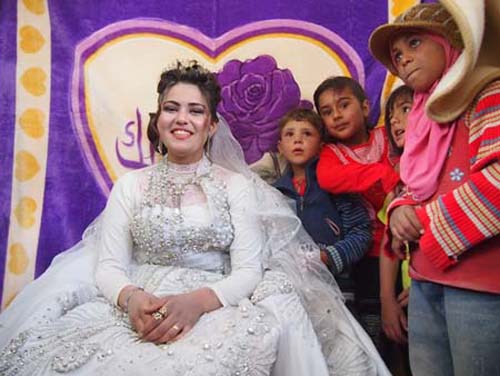
A blanket hung up on the wall as decoration was inscribed with the words in Arabic reading "I love You", written inside the shape of a heart.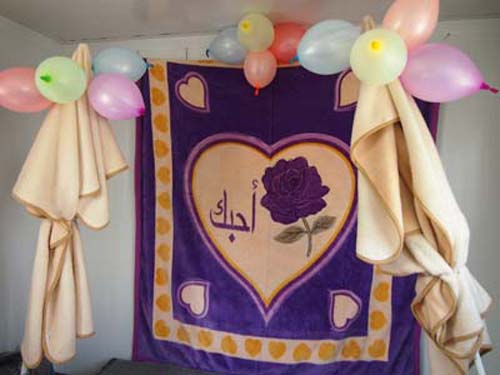
The children swarmed around one woman handing out some deliciously sweet traditional deserts, basbousa, a sweet cake made of semolina, soaked with syrup with an almond topping.
Basbousa
Then the women excitedly urged me to dance with them, laughing and clapping as they joined in. Their faces shining, people were laughing and smiling. A precious moment of joy and happiness puncturing a routine of hardship and struggle.

